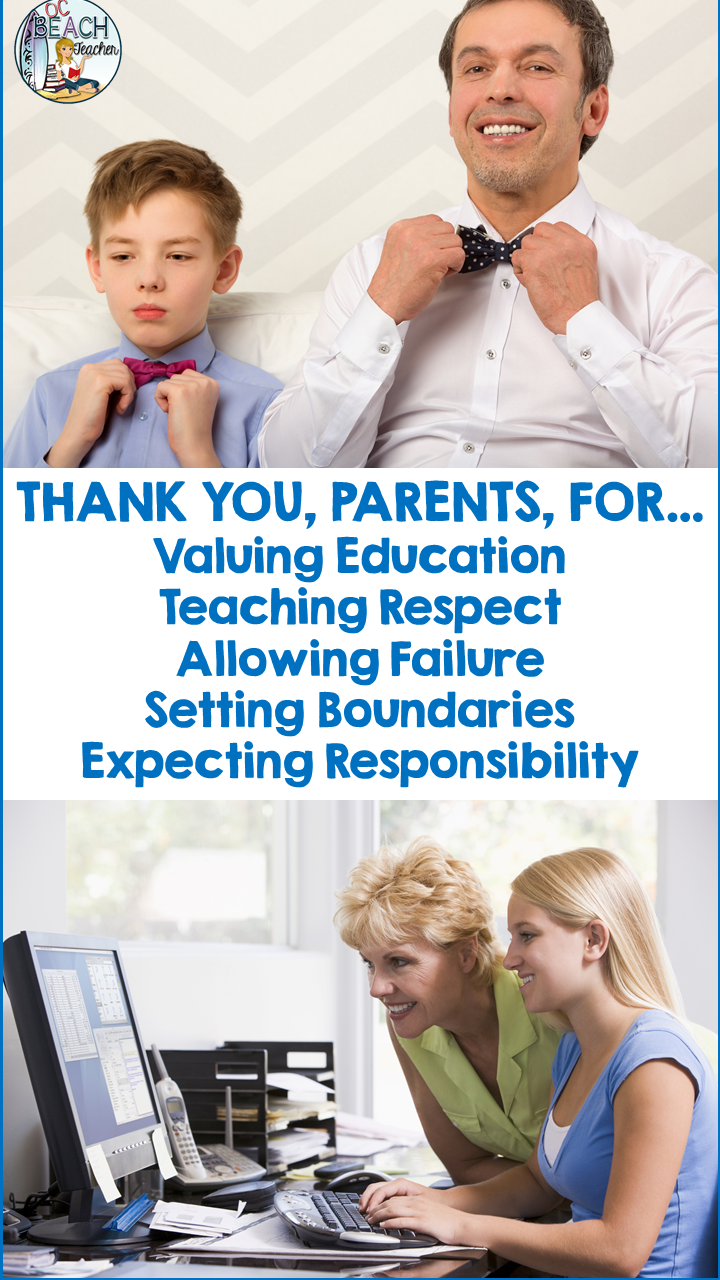Dear Parents,
This week I returned from winter break to my job teaching high school students. The ten-day vacation was needed- I was tired and out of patience before we left for the holiday. Upon our return, we had six hours of standardized testing, so I knew it would be a challenging week.
But I really enjoyed my week back because of you, parents, and your children. I’ve been teaching adolescents for 19 years and they can be difficult at times; however, this week reminded me that many of them are kind, responsible, and hard-working. It was a wonderful start to the new year, and I want to share my appreciation.
So thank you for…1. Valuing education. No doubt, you expect your children to try their best and earn good grades. You likely read to them when they were younger and may have volunteered in a classroom. You’ve discussed college and encouraged your children to seek post-secondary education when they finish high school. As their teacher, I know this because these students come to school with a desire to learn and work diligently, even on really long and boring assessments.
 2. Teaching respect. Although I may get an eye roll on occasion (they are teenagers after all), I know your children won’t swear at me, harass me, or threaten me. They do not challenge every direction I give. Furthermore, they respect their classmates, and don’t bully their peers. You’ve modeled respect for authority and clearly set these expectations at home.
2. Teaching respect. Although I may get an eye roll on occasion (they are teenagers after all), I know your children won’t swear at me, harass me, or threaten me. They do not challenge every direction I give. Furthermore, they respect their classmates, and don’t bully their peers. You’ve modeled respect for authority and clearly set these expectations at home.
3. Allowing failure (and the consequences that may accompany it). No one is perfect, and you realize that your child may make mistakes. He or she may not study for a test, or may procrastinate, or may skip class one day. These behaviors may result in failing grades or disciplinary action.
It’s normal for teenagers to test adults, to see what they can get away, and to bend the rules. But they also have to learn that there are consequences for their choices. Fortunately, this often helps them from making the same mistakes in the future.
4. Setting boundaries. Of course, you love your children, but you realize that you are not your child’s friend. Your social life is separate from your teens lives. In fact, you may set a curfew and probably have rules about the use of technology in your house. Maybe your children aren’t allowed to use their cell phones during dinner, and you surely expect them to finish their homework before playing more video games.
5. Expecting responsibility. Your children have chores, clean their rooms, and may help care for younger siblings. At an appropriate age, they will likely have part-time jobs. You may even require them to save money to help pay for their cars or college. This teaches them a good work ethic and discipline. They realize that they will need to earn success and they’ll likely have a better appreciation for money.
I wish I could say that every parent teaches the importance of these ideas at home, but regrettably, I can’t. But for the many parents that do make their homes a training ground for school and for work, thank you again. And some day in the future, I expect that your children (and my students) will thank you for helping them become healthy, productive, and compassionate adults.




